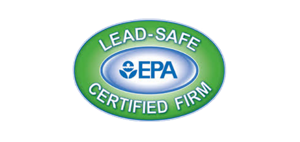Mold resulting from water damage is a common occurrence in households and can present a significant risk to your health. This article examines the potential health hazards associated with mold exposure from water damage, aiming to raise awareness about the importance of addressing water damage promptly.
Mold spores are a natural and common component of the household environment, but prolonged exposure to excessive amounts of mold can cause respiratory problems, allergic reactions, and even serious health conditions. Mold can grow in damp or wet areas, including after water damage from floods, leaks, or plumbing issues.
It’s essential to be aware of the health risks posed by mold exposure and take steps to address water damage immediately to safeguard your well-being.
Key Takeaways:
- Mold from water damage can pose serious health risks, including respiratory problems and allergic reactions.
- Mold thrives in damp or wet environments and can grow quickly after water damage.
- It’s critical to address water damage promptly to prevent the growth and spread of mold.
- Prolonged exposure to mold can result in serious health conditions, including lung infections.
- Take action to prevent water damage and address any issues as soon as possible to protect your health.
What is Mold and How Does it Grow in Water-Damaged Areas?
When water damage occurs, it creates the perfect environment for mold to grow and spread. Mold is a type of fungus that can thrive in damp, warm environments, and can grow quickly, resulting in extensive infestations if left unchecked. The growth and spread of mold spores can cause a range of health problems, which we will explore in later sections.
Mold reproduces through the release of spores that can float through the air, landing on surfaces and taking root. Moisture is essential for mold to grow and spread, making water-damaged areas an ideal breeding ground. Mold can grow on any surface, from drywall and wood to carpets and furniture. It can also easily hide within wall cavities or under flooring, making it difficult to detect until it becomes a major problem.
Identifying water-damaged areas is crucial to preventing mold growth. If you notice any signs of water damage, such as discoloration or a musty smell, take action immediately to dry out the area and prevent mold from taking hold.
Regularly checking for leaks or excess moisture in your home is also important, as prevention is key to avoiding the harmful effects of mold.
The Health Hazards Linked to Mold Exposure
Mold exposure resulting from water damage can have serious health implications. Prolonged exposure to mold can lead to a range of symptoms and conditions, including:
- Respiratory problems: Mold exposure can irritate your eyes, nose, and throat, causing coughing, wheezing, and difficulty breathing. It can also exacerbate asthma symptoms and lead to bronchitis or pneumonia.
- Allergic reactions: Some people may experience allergic reactions to mold, which can manifest as sneezing, runny nose, skin rashes, or hives. Exposure can also trigger hay fever, with symptoms such as itchy eyes and nose.
- Other health concerns: Prolonged exposure to mold can lead to fatigue, headaches, and difficulty concentrating. It has also been linked to depression, anxiety, and neurological problems.
It is important to note that people with pre-existing health conditions, such as allergies or respiratory issues, may be more susceptible to these health hazards. Furthermore, young children, the elderly, and individuals with weakened immune systems may be at a higher risk of developing serious health problems due to mold exposure.
To protect your health, it is essential to address water damage and mold as soon as possible. This not only prevents the growth and spread of mold but also helps to minimize the potential health risks associated with exposure.
Allergies and Respiratory Issues Caused by Mold Exposure
When mold from water damage accumulates in your home, it can have disastrous impacts on your health, particularly in terms of respiratory issues and allergies. As you inhale mold spores, it can irritate your respiratory system and cause a range of symptoms such as coughing, wheezing, and shortness of breath.
For individuals with allergies, mold exposure can be especially harmful. Mold spores are a common allergen and can trigger a range of allergic reactions. Symptoms such as itchy eyes, runny nose, and sneezing are just some examples of the problems that may arise.
In severe cases, exposure to mold from water damage can even result in asthma attacks. This is especially worrying in children since it has been linked to the development of asthma in those with a genetic predisposition. It is critical to address any mold-related issues as soon as possible to avoid further harm to your health.
| Respiratory Issues | Details |
|---|---|
| Asthma | Mold exposure can trigger asthmatic symptoms in those with a genetic predisposition, leading to asthma attacks. |
| Chronic coughing | Persistent exposure to mold can result in chronic coughing, making it difficult to breathe comfortably. |
| Wheezing | Mold spores can result in the constriction of your airways, leading to wheezing and shortness of breath. |
| Nasal congestion | Mold exposure can result in congestion, blockage, and swelling of your nasal passages, making it difficult to breathe normally. |
If you are experiencing any of these respiratory issues, it is essential to consult your healthcare provider as soon as possible to avoid further complications.
Lung Infections and Other Serious Health Concerns
Exposure to mold from water damage can lead to severe health risks, including lung infections and other serious respiratory conditions. When mold spores are inhaled, they can irritate the lungs and cause infection. This can especially be harmful to individuals with weakened immune systems or pre-existing respiratory conditions.
In addition, prolonged exposure to mold from water damage can have long-term effects on your health. It has been linked to the development of asthma, bronchitis, and even cancer in some cases. Therefore, it is crucial to take immediate action to address any water damage and mold growth in your home or workplace.
Risk Factors and Vulnerable Populations
While mold can pose a risk to anyone, certain risk factors can increase the likelihood of experiencing negative health effects from exposure. Individuals with pre-existing respiratory conditions, compromised immune systems, and allergies may be more vulnerable to the harmful effects of mold from water damage. Additionally, infants, young children, pregnant women, and the elderly may be more susceptible to respiratory infections caused by mold.
Other risk factors include living in damp or poorly ventilated environments, as well as working in occupations that have a high risk of exposure, such as agricultural, construction, and healthcare workers. It’s important to be aware of these risk factors, as they can help you identify when you may be at greater risk of exposure to mold from water damage.
If you suspect that you may be at risk of exposure or have experienced water damage in your home or workplace, it’s crucial to take action as soon as possible to address any potential mold growth. By staying informed and taking proactive measures, you can mitigate your risk of experiencing negative health effects associated with mold exposure.
Risks of Mold from Water Damage to Your Health
If left unchecked, mold from water damage can hurt you and your loved ones, posing serious health risks. Immediate action is essential to mitigate any potential dangers and safeguard your well-being.
Exposure to mold from water damage can cause various health issues, ranging from minor allergic reactions to severe respiratory conditions and lung infections. Vulnerable populations, such as children, elderly people, and individuals with weakened immune systems, are particularly at risk.
It’s essential to identify water damage and mold as early as possible and take prompt action to repair and clean the affected areas. Ignoring these issues can lead to more significant health problems, including long-term respiratory conditions and other severe health concerns.
Remember, prevention is key. By staying vigilant and addressing any water damage concerns immediately, you can minimize the risk of mold growth and safeguard your health.
FAQ
Is mold from water damage harmful to your health?
Yes, mold from water damage can be harmful to your health. Mold can release spores and mycotoxins that can cause respiratory issues, allergies, and even more serious health conditions.
What is mold and how does it grow in water-damaged areas?
Mold is a fungus that thrives in damp and humid environments. When an area is affected by water damage, the excess moisture provides the ideal conditions for mold growth. Mold can grow on various surfaces, including walls, ceilings, carpets, and furniture, if not properly dried and treated.
What are the health hazards linked to mold exposure?
Mold exposure can lead to a range of health hazards. Common symptoms include coughing, sneezing, wheezing, and throat irritation. Prolonged exposure to mold can also contribute to more severe respiratory issues and other health conditions.
Can mold exposure cause allergies and respiratory issues?
Yes, mold exposure can trigger allergies and respiratory issues. Mold spores can irritate the airways, leading to symptoms such as nasal congestion, itchy eyes, and difficulty breathing. Individuals with pre-existing respiratory conditions are particularly susceptible to these effects.
Are there serious health concerns associated with mold exposure?
Yes, mold exposure can lead to serious health concerns. In addition to allergies and respiratory issues, mold exposure has been linked to lung infections, pneumonia, and exacerbation of existing respiratory conditions such as asthma. It is important to address mold-related water damage promptly to minimize these risks.
What are the risk factors for mold-related health issues?
Several risk factors can increase your susceptibility to mold-related health issues. These include individuals with weakened immune systems, allergies, asthma, and other respiratory conditions. Additionally, living or working in environments with high levels of mold can also increase the risk.
Conclusion
In conclusion, mold from water damage can indeed be harmful to your health. It is essential to address water damage promptly and effectively to prevent mold growth and potential health risks. If you suspect mold in your environment, it is recommended to consult a professional for assessment and remediation.






